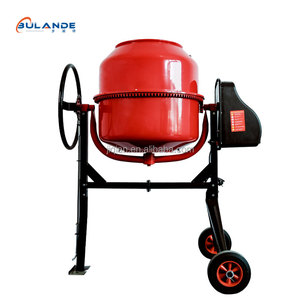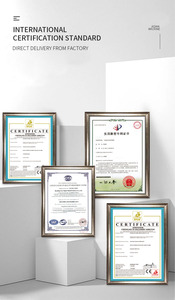
All categories
Featured selections
Trade Assurance
Buyer Central
Help Center
Get the app
Become a supplier

(98 products available)

















































In the realm of professional audio, video, and lighting, yamaha studio mixers plays a pivotal role in delivering high-quality sound experiences across various venues and applications. These sophisticated devices are designed to capture, amplify, and reproduce sound with precision, making them essential components in concerts, theaters, recording studios, and broadcast setups. yamaha studio mixers encompasses a wide range of products, including microphones, mixers, amplifiers, and speakers, each engineered to meet specific audio requirements. As technology advances, these systems continue to evolve, offering enhanced capabilities and superior sound quality to professionals in the industry.
The diversity of yamaha studio mixers available in the market caters to a multitude of audio needs. There are dynamic microphones, condenser microphones, ribbon microphones, and lavalier microphones, each serving distinct purposes. Dynamic microphones are known for their durability and versatility, making them suitable for live performances. Condenser microphones offer greater sensitivity and accuracy, ideal for studio recording. Ribbon microphones provide a warm sound, often used for capturing vocals and acoustic instruments. Lavalier microphones, or lapel mics, are compact and discreet, commonly used in broadcast settings. Additionally, there are various types of speakers, such as studio monitors, PA speakers, and line array systems, each designed to deliver optimal sound in different environments.
yamaha studio mixers offers a plethora of functionalities that are crucial for audio production and reproduction. Microphones capture sound waves and convert them into electrical signals, while mixers allow for the manipulation of audio inputs to achieve the desired sound output. Amplifiers enhance the audio signal's power, enabling it to drive speakers effectively. Speakers then transform the electrical signals back into sound waves, producing audible sound. Features such as frequency response, sensitivity, impedance, and polar patterns are critical in determining the performance of yamaha studio mixers. Advanced systems may also include digital signal processing (DSP) capabilities, enabling sound engineers to fine-tune audio outputs with precision.
The construction of yamaha studio mixers involves a combination of materials that ensure durability and optimal sound quality. Microphones often feature diaphragms made from Mylar or other synthetic materials, while their bodies may be constructed from metal or plastic to withstand rigorous use. Mixers and amplifiers typically have robust metal casings to protect internal components from damage. Speakers are crafted with materials such as wood, plastic, or metal, with cones made from paper, polypropylene, or Kevlar to achieve different sound characteristics. The choice of materials and construction techniques directly impacts the acoustic properties and longevity of yamaha studio mixers, making careful selection crucial for achieving high-performance audio systems.
Effective utilization of yamaha studio mixers requires a thorough understanding of its capabilities and limitations. For optimal performance, consider the acoustic environment and select equipment that complements the setting. Position microphones appropriately to capture sound accurately, avoiding feedback and distortion. Use mixers to balance audio inputs, ensuring clarity and cohesion in the sound output. Amplifiers should be matched with speakers of compatible power ratings to prevent damage and achieve desired volume levels. Regular maintenance, including cleaning and checking connections, ensures longevity and reliability of yamaha studio mixers. Additionally, training in sound engineering principles can significantly enhance the ability to harness the full potential of these sophisticated audio systems.
When selecting yamaha studio mixers, it's essential to consider the specific requirements of your application and venue. Factors such as the size of the space, the type of event, and the acoustics all play a crucial role in determining the appropriate equipment. For instance, larger venues may require more powerful speakers and amplifiers to ensure sound reaches the entire audience effectively. Conversely, smaller spaces might benefit from compact, portable devices that provide adequate sound without overwhelming the environment. Understanding the technical specifications of yamaha studio mixers, such as power handling, frequency range, and connectivity options, is vital for making informed decisions that enhance your audio experience.
Another important aspect is the compatibility of yamaha studio mixers with existing systems. Whether integrating new microphones, mixers, or speakers, ensuring seamless connectivity and synchronization with current equipment is crucial for optimal performance. Consider the type of connections available, such as XLR, TRS, or RCA, and the need for wireless capabilities if mobility is a priority. Additionally, the brand and model of yamaha studio mixers can impact the ease of integration, with some manufacturers offering more user-friendly interfaces and compatibility features than others. Evaluating these factors can help achieve a cohesive and efficient audio setup.
The selection of microphones as part of yamaha studio mixers involves understanding the purpose and environment in which they will be used. Dynamic microphones are ideal for live performances due to their durability, while condenser microphones are preferred for studio settings due to their sensitivity. Ribbon microphones offer a warm sound, suitable for capturing vocals and acoustic instruments. Considerations such as polar patterns, frequency response, and sensitivity are crucial in determining the right microphone for your needs.
Proper speaker placement is critical for maximizing the performance of yamaha studio mixers. Position speakers at ear level for the audience to ensure direct sound delivery. Avoid placing speakers too close to walls to prevent sound reflections that can lead to distortion. In larger venues, consider using line array systems for even sound distribution. The placement should also account for the type of event and audience size to achieve the best possible audio coverage.
An audio mixer is an integral component of yamaha studio mixers, facilitating the combination of multiple audio signals into a cohesive output. Mixers allow for adjustments in volume, tone, and effects, enabling sound engineers to tailor the audio experience to the specific requirements of an event or recording. Features such as equalization, panning, and effects processing are essential in achieving desired sound quality and clarity.
Minimizing audio feedback during live performances with yamaha studio mixers requires strategic microphone placement and sound system configuration. Keep microphones away from speakers to prevent sound loops that cause feedback. Utilize directional microphones to capture sound from specific sources while rejecting ambient noise. Adjusting the equalization settings on mixers can also help reduce frequencies prone to feedback.
Regular maintenance is vital for ensuring the longevity and reliability of yamaha studio mixers. Clean microphones and speakers to prevent dust accumulation, which can affect sound quality. Inspect cables and connections for wear and tear, replacing any damaged components promptly. Periodically test the functionality of all devices to identify and resolve issues before they impact performance. Proper storage and handling are also crucial in preserving the integrity of audio equipment.